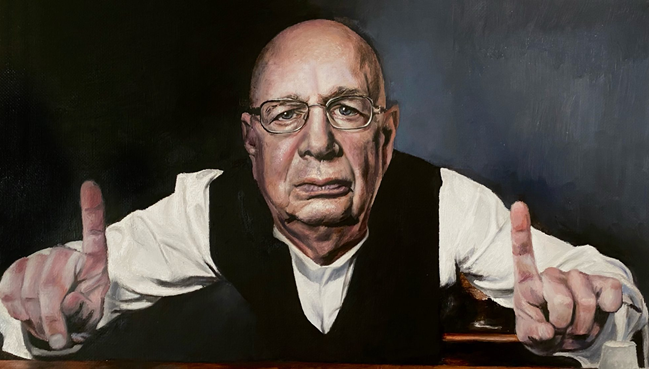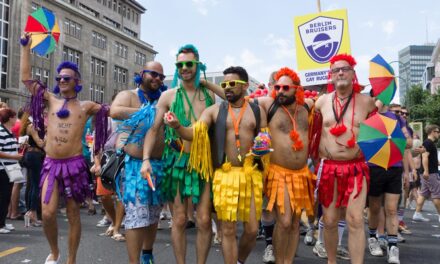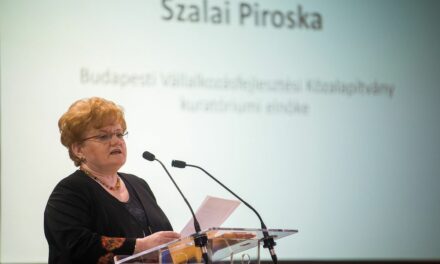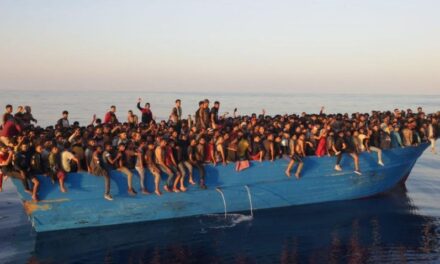More than 100 billionaires gathered in Davos this week at the World Economic Forum, which ended yesterday, to discuss the "crisis of the rising cost of living", "natural disasters and extreme weather events" and the "geo-economic confrontation".
And of course, about arming Ukraine against the Evil Empire. The evil one - that is, Russia - was not even invited to the event, but we already know this well from the catchphrase "sorry Comrade Virág, but this is the verdict" that was heard in the movie "The Witness".
At that time, at least twenty years ago, Dr. János Drábik warned the writer of these lines that if we want to judge an organization objectively, we must first find out who is funding it. (Since then, we have learned that this also applies to the vast majority of Western media.). Well, according to the article published on Unherd, the World Economic Forum itself is largely financed by around 1,000 member companies – typically globally. Businesses with multi-billion dollar turnover, which include some of the world's largest oil (Saudi Aramco, Shell, Chevron, BP), food (Unilever, The Coca-Cola Company, Nestlé), technology (Facebook, Google, Amazon, Microsoft, Apple ) and pharmaceutical companies (AstraZeneca, Pfizer, Moderna).
The composition of the World Economic Forum's board of directors is also very revealing, including Laurence D. Fink, CEO of Blackrock, David M. Rubenstein, co-chairman of the Carlyle Group, and Mark Schneider, CEO of Nestlé. We don't need to resort to conspiracy theories to assume that the World Economic Forum's agenda is aligned with the interests of its funders and board members – the world's ultra-wealthy and corporate elite – rather than “the World Economic Forum improving the world,” as the organization claims.
Perhaps the most symbolic example of the World Economic Forum's globalist momentum is the controversial strategic partnership agreement that the organization signed with the UN in 2019, which, according to many, involved the UN in the World Economic Forum's logic of public-private cooperation.
Isn't it interesting that "pandemic preparedness" was already discussed in Davos in 2017?
Then in October 2019, just two months before the official start of the Wuhan outbreak, the World Economic Forum co-sponsored an exercise called Event 201, which simulated an outbreak of a novel zoonotic coronavirus: the virus would spread from bats to humans and eventually from humans to cause a severe pandemic. cause
So we can safely say - wrote the publicist of Unherd - that when the Covid epidemic broke out, the World Economic Forum was in a good position to take on a central role in the response to the pandemic.
Worryingly, however, the World Economic Forum is now advocating the same top-down corporate approach in many other areas, from energy to food to global surveillance policies—with equally dramatic consequences.
This is why governments often seem so willing to adopt these policies, even in the face of widespread social opposition.
The World Economic Forum has achieved this largely through a program known as the Young Global Leaders (YGL) initiative, which aims to train future global leaders. The initiative, launched in 1992 (when it was still called Global Leaders for Tomorrow), has produced a number of globalist heads of state, cabinet ministers and business leaders. For example, Tony Blair participated in the first event, while Gordon Brown in 1993. In fact, the early meeting was packed with other future leaders, including Angela Merkel, Viktor Orbán, Nicholas Sarkozy, Guy Verhofstadt (…) and José Maria Aznar.
In 2017, World Economic Forum founder Klaus Schwab admitted to using Young Global Leaders to "infiltrate the cabins" of several governments, adding that in 2017, "more than half" of Canadian Prime Minister Justin Trudeau's cabinet were members of the program.
Recently, Dutch Prime Minister Mark Rutte's proposed drastic reduction of nitrogen emissions was in line with the "green" policy inspired by the World Economic Forum. its employment minister was elected the head of Young Global in 2008, while its deputy prime minister and finance minister, Sigrid Kaag, is a participant in the agenda of the World Economic Forum.
Ultimately, there is no denying that the World Economic Forum wields incredible power, which has strengthened the rule of the transnational capitalist class to a degree never before seen in history.
But it's important to recognize that its power is simply a manifestation of the power of the "superclass" it represents—a tiny group that researchers say is no more than 6,000-7,000 people, or 0.0001% of the world's population, yet more powerful than any social class the world has ever known.
Samuel Huntington, who is credited with the term "Davos man", argued that members of this global elite "have little need for national loyalty, see national borders as obstacles that are thankfully disappearing, and view national governments as relics of the past, whose only useful function is to facilitate the global operation of the elite". It was only a matter of time before these up-and-coming cosmocrats developed a means by which they could fully exercise their dominion over the 'lower classes' - and the World Economic Forum proved to be the perfect vehicle for this.
Featured image: Twitter












